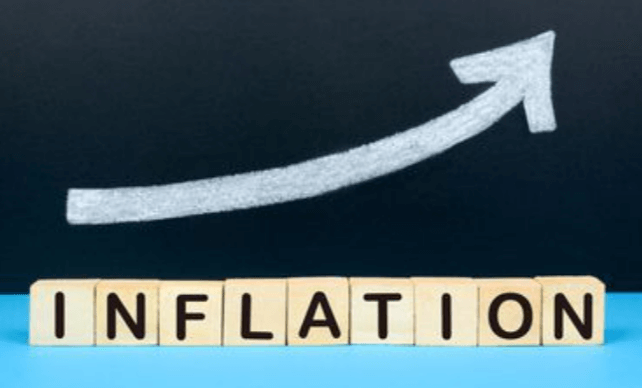What Impact Is the Current Inflation Rate Having on Investment Strategies?

Introduction
In recent times, inflation has emerged as a critical factor influencing global economic dynamics and individual financial strategies. With increasing prices impacting various sectors, understanding how the current inflation rate affects investment strategies has become essential for both individual investors and financial institutions. This article will delve into the intricate relationship between rising inflation and the strategic adjustments necessary in investment portfolios to mitigate its effects and optimize financial outcomes.
Understanding Inflation and Its Economic Impact
Inflation is essentially the rate at which the general level of prices for goods and services rises, leading to a decrease in purchasing power. It is commonly measured by the Consumer Price Index (CPI) and the Producer Price Index (PPI). Historically, inflation has varied significantly, influenced by various factors including economic policies, market demand, and supply chain disruptions.
Definition and Causes of Inflation
Inflation is caused by factors such as increased production costs, higher energy prices, and national and international economic policies. Understanding these causes helps investors anticipate potential market changes.
Historical Context: Inflation Trends Over the Past Decade
Over the past decade, inflation rates have fluctuated, influenced by global economic crises, technological advances, and geopolitical tensions, each playing a role in shaping investment landscapes.
Economic Theories Linking Inflation to Market Dynamics
Several economic theories explain the relationship between inflation and market dynamics, such as the Quantity Theory of Money and the Phillips Curve. These theories help investors understand potential economic outcomes and adjust their strategies accordingly.
Immediate Effects of Inflation on Investments
Inflation directly affects investment decisions by altering the landscape of returns and risks. Investors need to understand these changes to manage their portfolios effectively.
Reduced Purchasing Power and Its Implications
Inflation erodes the real value of money, diminishing the purchasing power of future cash flows from investments like bonds and fixed deposits. This necessitates shifts towards assets that potentially offer higher returns.
Interest Rates Fluctuations and Their Impact on Investment Returns
As inflation rises, central banks may increase interest rates to control economic overheating. Higher interest rates can reduce the attractiveness of existing bonds, affecting their prices and yields.
Sector-Specific Impacts: Which Sectors Thrive and Which Suffer?
Typically, sectors like consumer staples, utilities, and real estate may perform better during high inflation, while high-growth sectors like technology might underperform due to their reliance on future earnings, which are discounted more heavily as inflation rises.
Long-Term Implications for Investors
Inflation’s long-term impact on investment strategies can significantly alter financial planning, especially for long-term goals like retirement.
Inflation’s Role in Shaping Retirement Planning
Inflation must be a key consideration in retirement planning as it affects the cost of living and the real value of savings. Adjusting asset allocations and considering investments in assets like real estate or commodities can help safeguard purchasing power.
Impact on Long-term Investment Goals and Savings
For long-term investment goals, it’s crucial to incorporate strategies that account for inflation. This might include investing in equities or inflation-protected securities like TIPS.
Adapting Investment Strategies in Times of High Inflation
Adapting investment strategies during high inflation is crucial for maintaining portfolio growth and protecting assets against the eroding effects of rising prices.
The Role of Real Assets in an Inflationary Environment
Real assets such as real estate and commodities often act as effective hedges against inflation. These assets tend to appreciate in value when inflation rises, providing a buffer against the decreasing value of money.
Rebalancing Portfolios: Bonds, Stocks, and Alternative Investments
Rebalancing involves adjusting the weightings of different asset classes in a portfolio according to changing market conditions and inflation rates. This might mean reducing exposure to fixed-income securities and increasing allocations to stocks and real assets.
Geographical Diversification: Emerging Markets and Developed Economies
Investing in emerging markets can offer higher growth potential, which might offset the effects of inflation in developed economies. However, this comes with higher risk due to political and economic instability.
Risk Management and Inflation
Effective risk management is critical in inflationary times to protect investments and ensure portfolio resilience.
Tools and Techniques for Hedging Against Inflation
Hedging tools such as derivatives, commodities, and inflation-linked bonds can protect against inflation risks. Using these tools requires a sophisticated understanding of both the instruments and the economic environment.
The Importance of Liquidity During Inflationary Periods
Liquidity, or the ease of converting assets into cash without significant loss in value, becomes even more important during inflationary periods. It ensures that investors can quickly adapt or rebalance their portfolio in response to sudden economic changes.
Predictive Analytics and Inflation Trends: Preparing for the Future
Using predictive analytics to forecast inflation trends and potential market movements can be a powerful strategy for investors looking to mitigate risks and capitalize on opportunities.
Sector Focus: Real Estate and Commodities as Inflation Hedges
Certain sectors offer natural protection against inflation and are considered smart choices during periods of high inflation.
Real Estate Investment Trusts (REITs) and Their Performance During Inflation
REITs often perform well during inflationary periods as property values and rents increase. This makes REITs an attractive option for investors seeking to protect their portfolios against inflation.
Commodities and Their Correlation with Inflation Rates
Commodities such as oil, gold, and silver have historically been excellent hedges against inflation. Their prices typically increase when inflation rises, providing a safeguard for investors.






